Strengthening the evidence base for achieving SDG Target 8.7
The global and national research agendas
Within the framework of Alliance 8.7, ILO and IOM are collaborating on the USDOL-funded project “From Research to Action (RTA): Using Knowledge to Accelerate Progress in the Elimination of Child Labour and Forced Labour”.
Building on the Evidence Gap Maps, the project team has worked with funding partners, policymakers, researchers, and social partners to develop a global research agenda, as well as national research agendas in Chile, Malawi, Nepal, Paraguay, and Uganda.
The Global and National Research Agendas
The global and national research agendas identify five broad thematic areas and include a few research questions to encourage researchers to address evidence gaps. The areas are:
- Risk factors for vulnerability
- Assessment of what works and what does not
- Technology and Artificial Intelligence (AI)
- Monitoring and measurement
- Economic, environmental, and social costs
We invite and encourage new collaborations and innovative approaches to implement the Global and National Research Agendas.
This synthesis report summarises our experience. It includes a checklist, the survey, and key informant interview questions.
We count on you to translate research into policy action and solutions to sustainable development.
Please write to rtaproject@ilo.org with any questions.
